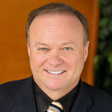How to Use Your Estate Plan to Save Tax Now: A Timely Update
Consider an upstream basis trust and a general power of appointment for an older family member to reduce capital gains taxes on highly appreciated assets.


An upstream basis trust can be used to minimize capital gains on assets sold during your lifetime. This is done by providing an older family member (Mom, Dad or Grandpa) a power of appointment in your trust holding appreciated assets with low or no basis.
A general power of appointment (GPOA) empowers the holder of the power to give away or direct the distribution of your property upon your death. This “power of appointment” provides a step-up in the assets in the trust upon the power holder’s death.
You do not have to inform the power holder (Mom, Dad or Grandpa) that they hold this power. You can also limit the exercise of this power to require the prior written consent of another person who is not related to or subordinate to the power holder. The power itself can be somewhat limited, such as appointing assets to a creditor.

Sign up for Kiplinger’s Free E-Newsletters
Profit and prosper with the best of expert advice on investing, taxes, retirement, personal finance and more - straight to your e-mail.
Profit and prosper with the best of expert advice - straight to your e-mail.
Greater care must be taken if the designated power holder lacks capacity when granted or given their power. If so, consider stating that an agent under a durable power of attorney or guardian could act. Note that this would typically mean that the agent is designated in a pre-existing valid durable power of attorney.
Here’s an example
Son buys an office building (or Apple stock) for $1 million. The building or stock is now worth $10 million. If sold, a capital gains tax of 20% to 33.3% might be owed. If held in trust granting Dad a GPOA and Dad dies, the income tax basis is increased to the fair market value as of the date of death. If the building or stock is sold at or around that date, there’s no tax on the capital gain, a tax savings of $2 million to $3.33 million. If the asset is not sold and subject to depreciation, such as a building, the depreciation is now recalculated with a basis of $10 million. This will provide a substantial tax savings even if the building is not sold.
This upstream basis trust was recently discussed at the 2024 Heckerling Institute on Estate Planning, which is one of the premier estate planning and tax planning educational events held nationally each year. We have been utilizing this technique for years. For more information about how this works, please see my article How to Use Your Estate Plan to Save on Taxes While You’re Still Alive!
Related Content

Founder of The Goralka Law Firm, John M. Goralka assists business owners, real estate owners and successful families to achieve their enlightened dreams by better protecting their assets, minimizing income and estate tax and resolving messes and transitions to preserve, protect and enhance their legacy. John is one of few California attorneys certified as a Specialist by the State Bar of California Board of Legal Specialization in both Taxation and Estate Planning, Trust and Probate.
-
 Seven Steps Couples Should Take Before Blending Their Finances
Seven Steps Couples Should Take Before Blending Their FinancesGetting on the same page now can ensure you remain successful throughout your relationship.
By Kiplinger Advisor Collective Published
-
 Charitable Remainder Trust: The Stretch IRA Alternative
Charitable Remainder Trust: The Stretch IRA AlternativeThe SECURE Act killed the stretch IRA, but a properly constructed charitable remainder trust can deliver similar benefits, with some caveats.
By Brandon Mather, CFP®, CEPA, ChFEBC® Published
-
 Charitable Remainder Trust: The Stretch IRA Alternative
Charitable Remainder Trust: The Stretch IRA AlternativeThe SECURE Act killed the stretch IRA, but a properly constructed charitable remainder trust can deliver similar benefits, with some caveats.
By Brandon Mather, CFP®, CEPA, ChFEBC® Published
-
 Three Ways to Take Control of Your Money During Financial Literacy Month
Three Ways to Take Control of Your Money During Financial Literacy MonthBudgeting, building an emergency fund and taking advantage of a multitude of workplace benefits can get you on track and keep you there.
By Craig Rubino Published
-
 How Did O.J. Simpson Avoid Paying the Brown and Goldman Families?
How Did O.J. Simpson Avoid Paying the Brown and Goldman Families?And now that he’s died, will the families of Nicole Brown Simpson and Ron Goldman be able to collect on the 1997 civil judgment?
By John M. Goralka Published
-
 What Not to Do if an Employee or Loved One Is Kidnapped
What Not to Do if an Employee or Loved One Is KidnappedBusinesses need to have a crisis plan in place so that everyone knows what to do and how to do it. Sometimes, calling the authorities isn’t recommended.
By H. Dennis Beaver, Esq. Published
-
 Why You Shouldn’t Let High Interest Rates Seduce You
Why You Shouldn’t Let High Interest Rates Seduce YouWhile increased interest rates are improving the returns on high-yield savings accounts, that may not be an effective place to park your money for the long term.
By Kelly LaVigne, J.D. Published
-
 Need to Build an Emergency Fund? Seven Steps to Get There
Need to Build an Emergency Fund? Seven Steps to Get ThereHaving a safety net can mean peace of mind on top of being able to maintain your lifestyle if a financial emergency strikes.
By Justin Stivers, Esq. Published
-
 Which Type of Life Insurance Is Right for You?
Which Type of Life Insurance Is Right for You?Life insurance isn’t a one-size-fits-all option. Here are the differences between term life, whole life and indexed universal life insurance.
By Jay Dorso Published
-
 What Happens Financially When You Work One More Year?
What Happens Financially When You Work One More Year?The impact of saving more, spending less later and benefiting from an extra year or more of compounding can be truly staggering.
By Andrew Rosen, CFP®, CEP Published